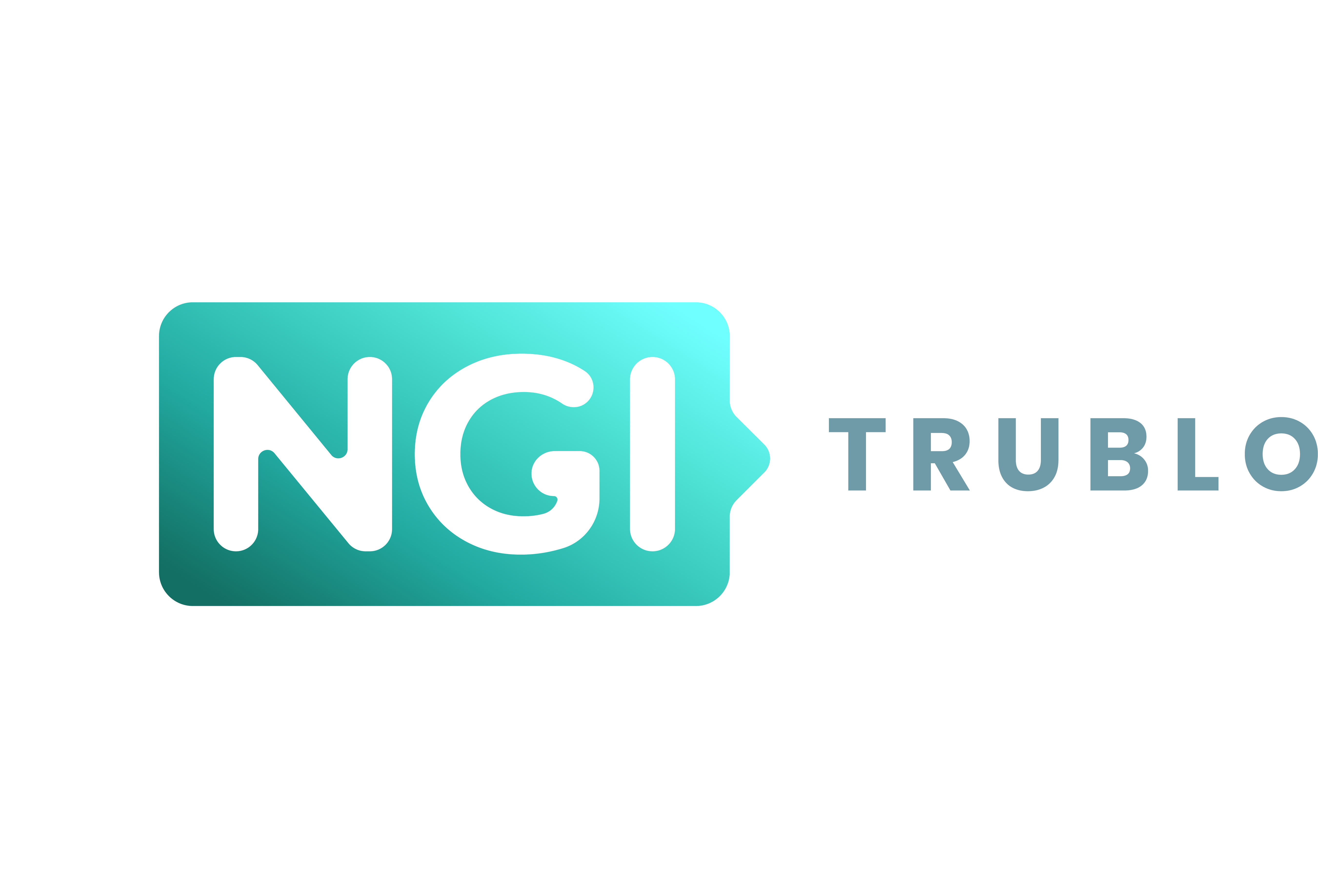Demo Day 3

A scientific way to better understand conspiracy theories
This links to an interesting scientific article published in February 2022. The report provides a relevant and updated view on how to handle “conspiracy theories”.
“Findings show that the majority of studies lack a definition of conspiracy theories and fail to conceptually delineate conspiracy theories from other forms of deceptive content. We also found that while the field employs a variety of methodological approaches, most studies have focused on individual, “mainstream” social media platforms, “Western” countries, English-language communication, and single conspiracy theories.”
Conspiracy theories are “alternative explanations of historical or ongoing events claiming that people or groups with sinister intentions are engaged in conspirational plotting have permeated online communication, news media coverage, popular culture and political rhetoric”.
If you have encountered a believer of such theories you will know: A debate with people who believe such theories can be quite stressful – usually it is not a discussion but quickly turns into a war over who is right.
The scientific article explores the evolution of such topics in an online environment and provides an overview of the research on this topic, including recommendations towards future scientific analysis.
“For a long time, conspiracy theories were perceived as harmless phenomena that were “silly and without merit” (Keeley, 1999: 109) or only existed as “‘soft’ beliefs” (Sunstein and Vermeule, 2009: 220) that people quietly kept but rarely acted upon.”
But, especially during the COVID-19 years the world witnessed a rising influence of such views and a high visibility of groups supporting such theories on almost all social networks.
Profound changes in the media and platform ecosystem and particularly the advent of social media platforms, which have enabled faster communication about and dissemination of conspiratorial narratives, have changed this, however. Thus, the last few decades have seen a plethora of “high-profile conspiracy theorizing” (Uscinski, 2018: 233) around topics such as vaccination, climate change, the 9/11 attacks (Mahl et al., 2021), or, most recently, the COVID-19 pandemic (Zeng and Schäfer, 2021).
Source:
Conspiracy Theories in online environments: An interdisciplinary literature review and Agenda for future research
By
Photo by Markus Winkler on Unsplash

Five Minute Blockchain Newsletter Nr. 57
Five Minute Blockchain – No. 57
13.06.2023
Estimated reading time: 3 mins 42 seconds
Quote of the Week
Science Fiction writer Ted Chiang in an interview with the Financial Times: What could be a better word to describe “artificial intelligence”?
Chiang’s main objection, a writerly one, is with the words we choose to describe all this. Anthropomorphic language such as “learn”, “understand”, “know” and personal pronouns such as “I” that AI engineers and journalists project on to chatbots such as ChatGPT create an illusion. This hasty shorthand pushes all of us, he says — even those intimately familiar with how these systems work — towards seeing sparks of sentience in AI tools, where there are none.
“There was an exchange on Twitter a while back where someone said, ‘What is artificial intelligence?’ And someone else said, ‘A poor choice of words in 1954’,” he says. “And, you know, they’re right. I think that if we had chosen a different phrase for it, back in the ’50s, we might have avoided a lot of the confusion that we’re having now.”
So if he had to invent a term, what would it be? His answer is instant: applied statistics.
TRUST
“Platforms have given up on 2020 lies”
Spreaders of misinformation get their accounts re-activated for several reasons. This looks problematic from the outside because wrong statements and views will be amplified again. In other news: Twitter is currently negotiating with Google Cloud services; in principle, they want to change a contract. This, though, will affect all kinds of services Twitter uses, for example, to avoid spam or other malicious content.
CONTENT
Management versus users: The big fight over at Reddit
These days thousands of Reddit communities are not reachable. Their administrators, all volunteers, have taken the communities “private”.
The reason for the move is that Reddit plans to charge for the use of its API. The changes were announced in April and will become effective by June 30, 2023.
Before usage of the API was free, which led to the creation of some successful apps, providing access to Reddit users using mobile phones.
Those apps, one example being Apollo, will now stop working. Based on preliminary calculations, they would have to pay up to $20 million per year to Reddit. On the other side, the company says that the external apps are not helping to make any money (e.g., through advertising) and that they even cost money, based on the need to maintain the API and other parts of the software.
Though users’ protests are loud and clear, it is unlikely that the API charges will change. The main reason is that Reddit is preparing for an IPO.
BLOCKCHAIN
Swift explores blockchain interoperability to remove friction from tokenised asset settlement
Swift, the global financial transactions network, aims to overcome the fragmentation of multiple blockchains, specifically for institutional investors.
“In capital markets, there’s a growing view that blockchain technology has the potential to generate efficiencies, reduce costs and open up opportunities for some parts of the industry. For example, private markets have historically been dependent on legacy systems and processes, which add costs and deter investment. By rationalising operations and settlement processes, blockchain could attract more investors into the private markets and ultimately increase liquidity.”
Venture company Andreessen Horowitz opens crypto-focused office in London
The move is partially understood as a reaction after the U.S. Securities & Exchange Commission (SEC) sued Binance and Coinbase in the U.S. The expectation is that in London, where many financial institutions have headquarters, regulatory clarity for crypto assets might be achieved faster than in the U.S. This could lead to start-ups and even established companies in the crypto market moving to the U.K.
Quote from Axios: “If they can get regulatory clarity soon in the U.K., I think you’ll see U.S. companies move there and new companies start there,” says Chris Dixon, who founded and leads Andreessen Horowitz’s crypto practice (known as a16z crypto).
$43 million funding for Gensyn, a blockchain-based marketplace for compute power
London-based Gensyn, a blockchain-based marketplace protocol connecting compute power buyers and sellers, announced a $43 million Series A fundraising today.
A16z Crypto led the round alongside CoinFund, Canonical Crypto, Protocol Labs, Eden Block, Maven 11 and various angel investors.
Short Links
- Robin Hood to delist Solana, Cardano & Polygon tokens after SEC describes them as securities (Web3isjustgoinggreat)
- Former SEC Chairman Jay Clayton on Enforcement Actions: Crypto Should Be Treated With ‘Nuance’ (Bitcoin.com)
- Binance Labs and FunPlus lead a $6.6 million investment in Fusionist – the platform has a community of 800,000 people. (The Block)
- Tencent backs Aave’s decentralised social networking protocol, Lens (Ledger Insights)
Thank you for reading. If you have questions or suggestions, please get in touch with us via info@trublo.eu.
Photo by Nick Fewings on Unsplash

Five Minute Blockchain Newsletter Nr. 56
Five Minute Blockchain – No. 56
01.06.2023
Estimated reading time: 6 min 12 sec
Quote of the Week
“Mitigating the risk of extinction from A.I. should be a global priority alongside other societal-scale risks, such as pandemics and nuclear war.”
One-sentence statement signed by AI experts, published on the Center for AI Safety webpage. LINK
TRUST
AI experts warn about AI
This week’s big trust/content/tech topic is puzzling: Why would experts warn about the potential threats of AI? After all, this is the technology they are working on, in a race one against the other to make the technology better.
Essentially, founders like Sam Altman urge that AI platforms should be regulated. Another idea is that AI platforms should be required to have a license to operate from a government agency which has yet to be established.
CONTENT
Google rolls out AI/LLM powered “Search Generative Experience” to some users.
As announced during the recent Google Event I/O 2023, users who have signed up for the Search Labs program can now use “Search Generative Experience” (SGE) – a Google search supported by AI.
The key idea of SGE is to support users with “longer, multistep searches. These queries might not necessarily be answered by one website.
Below is an illustrative example of how this could work:
“Maybe you’re starting to map out a decision that you’d typically need to break down into smaller parts, like ‘Learning ukulele vs guitar.’ Search will provide an AI-powered snapshot so you can get help understanding what factors to consider.”
BabyLM Challenge aims to create powerful AI with small language models
ETH Zurich and others are part of a particular challenge to perform research towards small but effective language models for AI. This is interesting because large current models can only operate with extensive cloud resources. Smaller models could be easier to handle while still providing lots of output.
How Adobe adds “product” to AI
The big tech and software companies are racing to react to generative AI. Last week Adobe introduced its offering, called Firefly. The software enables the generation of images and is part of the well-established Photoshop. Firefly enables “generative fill”, providing many new options for visuals and pictures.
Benedict Evans on how this is different from other offerings.
“Adobe made a very successful shift to subscription SaaS in the last decade. Now it’s trying the same with generative AI, launching a de novo image generation product in Firefly and adding generative features to Photoshop.
The more generally important part of this, I think, is the move to add interface, control and product to the prompt: instead of typing 50 words into a box and waiting to see what you get, there are options and switches to give you some control.”
Examples of how Firefly can be used (Thread on Twitter)
Was Google Bard trained on Gmail data? Yes, no, maybe?
Asked what data was used for training, Bard, the AI software from Google, recently replied to a user that Gmail data was used. This might have been a case of AI hallucination, where platforms make up answers. But even the potential use of (private) Gmail data set off a flurry of comments and articles, as many users and journalists would consider this a breach of privacy … and trust. Google wanted to ensure that Bard was not trained in using Gmail data and that the software was “hallucinating” in this particular answer. But the honest answer is a bit more complicated. A good write-up of the whole situation can be found under the link.
Apple App Store generated $1.1 trillion of commerce in 2022
Apple released a study with data about the amount and type of revenue generated globally in the App Store. To this end, the company commissioned a research firm for a report, which can be downloaded for free.
The numbers are very, very high. $1.1 trillion (Europe, long ladder = one billion)
“Apple says its App Store ecosystem generated $1.1 trillion in developer billings and sales in 2022, 90% of which was commission-free — a metric it likes to tout to downplay the growing complaints about the high cost of doing business on a marketplace that generally takes a 15% to 30% commission on in-app purchases and paid downloads, with some exceptions.
This $1.1 trillion breaks down as $910 billion in total billings and sales from the sale of physical goods and services, $109 billion from in-app advertising and $104 billion for digital goods and services.”
In 2019 the full-year revenue was “only” $519 billion (Europe: Milliard), which means the figure doubled during the pandemic.
An app for short attention spans
“Web Roulette, a mobile web browser app for iOS built for the short attention spans of the TikTok era. With the debut version out now, you can add your favorite websites or choose from its suggestions, then swipe through the sites to see what’s new or shake the app for a surprise web page when boredom strikes.”
Digital nomads are a new type of tourist but with some adverse effects on local communities
Cities from Canggu to Medellín are welcoming tech workers, but locals complain they’re being priced out.
BLOCKCHAIN
Fireside Chat: A Twitter competitor with (potentially) 45 million users
A key element and difference to Twitter are rewards for good entries:
“Created by Pi Network and dubbed Fireside Forum, the initially text-based social platform is enlisting a model where users can spend tokens rewarding and elevating posts they like or invest them in penalizing the posts they don’t. The company’s aim is the Pi Network model will help suppress content considered spam, misleading, toxic or all of the above.”
White Paper from World Economic Forum suggests ways to regulate Crypto
Here is a new approach to creating trust and some form of regulation for crypto assets:
“The World Economic Forum (WEF) recently published a white paper titled “Pathways to the Regulation of Crypto-Assets: A Global Approach,” advocating for a collaborative approach towards crypto regulation on a global scale. The white paper highlights the unique challenges and necessary considerations regarding the regulation of crypto-assets. Considering the borderless, open-source, decentralized nature of these digital currencies, their regulation requires a delicate balance between preventing harm, protecting users, and promoting innovation.”
World Economic Forum – Pathways to the Regulation of Cryptoe-Assets: White Paper
Tokenization gains popularity in finance, elsewhere
“Asset tokenization is increasingly being tested to improve costly capital markets operations like securities issuance. New York-based Fireblocks, which helps businesses create and manage digital assets, believes tokenization will enjoy exponential adoption over the next two years, as early-adopter businesses start to experience the very tangible benefits.”
SAP to start NFT platform
“SAP sees NFTs as an extension of digital twins where the twin is a promo item, a ticket for an event, or can be redeemed for physical goods.”
An initial trial has been done with a German retailer in the area of customer loyalty:
One of the companies that SAP has worked with to build the solution is Tchibo, the German coffee shop and online retailer with more than 1,000 stores and revenues of more than €3 billion.
… As a trial, Tchibo minted 1,000 NFTs on the Polygon blockchain for its Royalty Club. Some Golden NFTs were redeemable for small prizes.
Short Links
- Twitter is now worth only a 3rd of what Elon Musk paid (Reuters)
- Twitter’shrinking role as a traffic source for news publishers
- Vietnam pressures TikTok to censor more content or face a ban (Rest of World)
- Multichain, the cross-chain protocol, confirmed Wednesday that the team could not contact its chief executive amid ongoing technology problems. (The Block)
Thank you for reading. If you have questions or suggestions, please contact us via info@trublo.eu.
Photo by Daiga Ellaby on Unsplash
